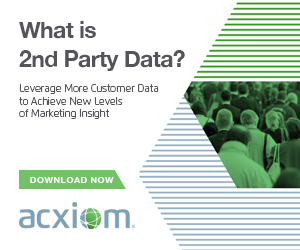Welcome to episode No. 19 of AdExchanger Talks, a podcast focused on data-driven marketing. Subscribe here.
Since its acquisition by GroupM in 2015, digital agency Essence has played a “quasi-ambassadorial role” between GroupM and its client Google, Essence co-founder and Chief Product Officer Andrew Shebbeare says in the latest episode of AdExchanger Talks.
“We’re trying to help champion Google products inside GroupM and WPP, and naturally Google tend to use us as a very early tester of their own capabilities on their own campaigns,” Shebbeare said. “And we’re also able to voice a lot of GroupM’s questions, concerns and priorities back into the Google organization. So we’re doing a glue job if you like, bringing the two a little closer together.”
The company is also working with specialists at WPP, such as advanced TV unit Modi Media and out-of-home agency Kinetic, to apply digital measurement techniques for traditional media.
For Shebbeare, bundling tech with services into formal “practices” is a key to the future agency model, and Essence has built several pieces of software that does things like streamline the planning process and automates reporting and data ingestion.
Yet, Essence views these offerings as products, such that its programmatic offering is a product, its tech offerings are products and its planning capability is a product.
Marketers today are in a strange situation: The consolidation of technologies and long-tail inventory was supposed to make their lives easier. Instead, Shebbeare said, it’s added complexity.
“How to work with Facebook, Google, Snap, Amazon, Twitter is the question that’s on almost every CMO’s mind,” he explained. “They’re all important partners, but it’s an incredibly difficult environment to form objective points of view on.”
But consolidation brings huge potential benefits that grow with each passing month. It’s getting harder for advertisers to not consider whether to commit, for example, to Google or to another platform’s cross-device graph as a primary source of truth.
“That’s a really important choice for a marketer to make, but potentially a hugely valuable proposition,” Shebbeare says. “These are really important commercial decisions.
Because there’s greater payoff as well, in the form of more measurement opportunities, more streamlining and more cost and work efficiencies.
Brand Safety
Finally, Shebbeare talks about the rapidly expanding backlash against Google due to brand safety. (The episode was recorded on Tuesday, before several US brands withdrew their spend and before Wednesday’s terror attack in London.)
“Google has responded in a very responsible and measured manner,” Shebbeare said, noting the blog post from Google Chief Business Officer Philipp Schindler acknowledges the side effects of the democratizing power of the internet.
“I don’t think that means that any of these adjacency issues are excusable,” Shebbeare said. “It doesn’t make them OK, but they are somewhat inherent in a free and open internet – at least a free and open internet that is funded by advertising in any measure.”
Despite the media pile-on, Shebbeare doesn’t think there’s a “global conspiracy to take down Google,” though the mainstream press might be jealous because Google takes a disproportionate amount of ad dollars.
“But I also think when a story takes fire, you add fuel to it, and I think that’s what we’re seeing,” Shebbeare said. And the issue around brand safety, even if it’s been somewhat blown out of proportion, isn’t new.
“It’s going to be an ongoing battle for Google, for Facebook, for Snap, for Twitter, for the agencies and brands who buy media through those platforms,” he said. “The job will never be done and we just have to continue to work really hard to make sure that the media quality equation works for everyone.”
This episode is supported by Acxiom.













